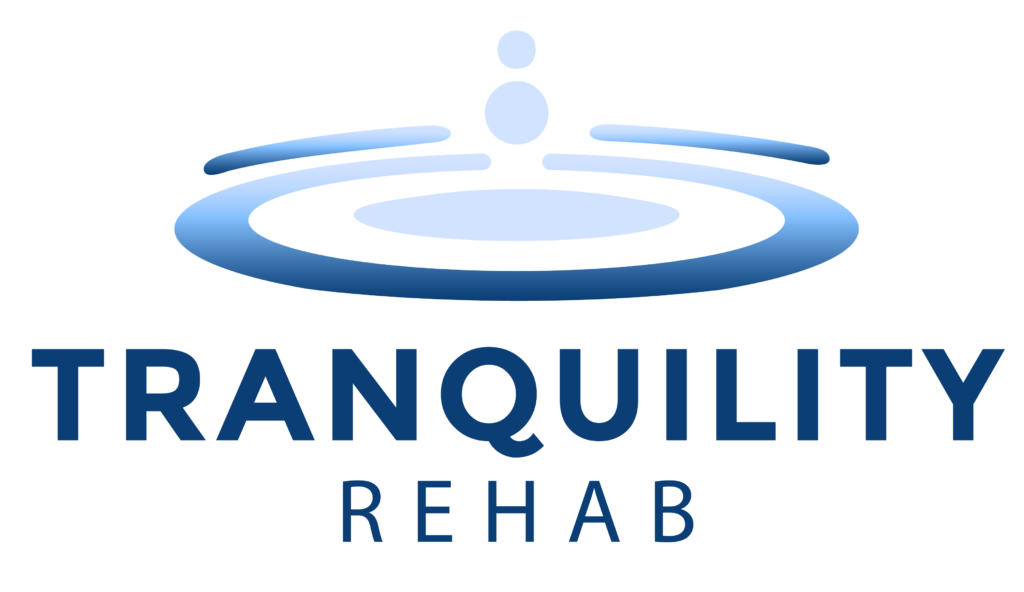Tranquility Rehab is a leading Dual Diagnosis Treatment Center in California offering gender-specific addiction and mental health treatment.
The Complexity of Dual Diagnosis: Addiction & Mental Disorders
At Tranquility Rehab, we understand that every journey to recovery is unique, with its own set of hurdles and complexities. Among the many challenges we encounter in the realm of addiction and mental health treatment, dual diagnosis stands as one of the most intricate and demanding areas we face.
Dual diagnosis, also known as co-occurring disorders, refers to the simultaneous presence of a substance use disorder (SUD) and a mental health disorder (MHD) in an individual. It’s a terrain where the lines between addiction and mental health blur, creating a complex web of intertwined issues. Our commitment to helping individuals facing dual diagnosis is unwavering because we recognize the profound impact it can have on their lives and the importance of providing specialized care.
Why Addiction & Mental Illness Often Come As a Package Deal
It’s not uncommon for individuals to find themselves caught in the complex web of addiction and mental illness. The intertwining of these two challenges can be perplexing, but understanding why they often go hand-in-hand is essential for effective treatment.
One common scenario is when people turn to alcohol or drugs as a way to cope with the symptoms of mental illness. For example, someone grappling with the overwhelming weight of depression may seek solace in illicit substances, hoping to temporarily suppress their emotional turmoil. Similarly, an individual dealing with anxiety might turn to opiates in an attempt to find relief from their relentless worry, inadvertently developing a dependence on the drug in the process.
Conversely, substance use can also lead to the development of mental health issues. The alteration of brain chemistry and function caused by drugs can trigger mental health problems. For instance, someone who initially turns to a substance for recreational purposes may find themselves struggling with depression as their body craves more of the substance, and the cycle deepens.
Compounding the challenge is the fact that both addiction and many mental health disorders share overlapping symptoms. This can make it difficult for an individual to recognize the presence of a concurrent psychiatric condition, further complicating the journey to recovery.
A Promising Tomorrow Begins Today
Addiction & Mental Disorders Treatment in California
At Tranquility Rehab, we recognize the intricate relationship between addiction and mental health. Our dual diagnosis treatment center in California approaches treatment by addressing both aspects comprehensively, providing individuals with the tools and support they need to break free from the cycle of dual diagnosis and work towards a healthier, more fulfilling life.
One of the most challenging aspects of dual diagnosis is the intricate relationship between depression and substance abuse, particularly cocaine addiction. Depression and cocaine addiction can often co-exist in individuals for a variety of reasons.
Depression, characterized by persistent feelings of sadness, hopelessness, and a lack of interest in activities, matches up well with the euphoric effects provided by cocaine. Individuals with depression may turn to cocaine as a way to self-medicate, seeking temporary relief from their emotional pain. However, this relief is fleeting, and cocaine use can exacerbate depressive symptoms over time. At Tranquility Rehab, we recognize the need for comprehensive treatment that addresses both the mental health aspect and the addiction.
Our approach involves therapy, counseling, and support to help individuals break free from the cycle of depression and cocaine addiction.
Attention-Deficit/Hyperactivity Disorder (ADHD) is a condition marked by difficulty focusing, impulsivity, and hyperactivity. Unfortunately, individuals with ADHD are at a higher risk of developing alcoholism. Many turn to alcohol as a way to self-medicate, seeking relief from the restlessness and difficulty concentrating that often accompany ADHD. This dual struggle requires a specialized approach. At Tranquility Rehab, we provide tailored treatment that addresses both the underlying ADHD and alcoholism. Our goal is to equip individuals with the coping strategies and support they need to manage their ADHD without relying on alcohol.
Bipolar disorder, characterized by extreme mood swings between manic highs and depressive lows, can frequently coincide with alcohol abuse. Individuals with bipolar disorder may turn to alcohol as a way to self-medicate during depressive episodes or to enhance the euphoria of manic phases. However, this self-medication can lead to a destructive cycle of alcohol abuse that worsens the symptoms of bipolar disorder. Our approach at Tranquility Rehab involves a careful assessment of the individual’s condition and the development of a personalized treatment plan that addresses both bipolar disorder and alcohol abuse. We aim to provide a stable and supportive environment for individuals to regain control over their lives.
Post-Traumatic Stress Disorder (PTSD) often accompanies opioid addiction, creating a complex and challenging dual diagnosis. Individuals with PTSD may use opioids as a way to numb the emotional pain and distress caused by traumatic experiences. However, this coping mechanism can lead to a debilitating addiction.
At Tranquility Rehab, we take a trauma-informed approach to dual diagnosis, recognizing the importance of addressing both the trauma and the addiction. Our treatment programs incorporate evidence-based therapies and counseling to help individuals heal from their trauma and overcome PTSD and opioid addiction.
Approximately 24 million individuals grapple with the challenges of eating disorders, including anorexia, bulimia, or binge eating disorder. What often goes unnoticed is the concurrent misuse of over-the-counter and prescription weight loss pills, often referred to as appetite suppressants. These substances are sometimes underestimated in terms of their addictive potential. However, they are frequently abused for their perceived ability to curb hunger and enhance fat burning.
For individuals battling eating disorders and substance abuse, it’s not uncommon to misuse a range of substances. In addition to appetite suppressants, they may turn to laxatives, diuretics, emetics, and even more potent drugs like amphetamines, cocaine, or heroin in a desperate attempt to gain control over their body and weight.
It’s important to recognize that certain personality traits, such as perfectionism and impulsiveness, have been associated with both eating disorders and substance use disorders. Disordered eating patterns can manifest as a symptom of underlying mental health issues, including depression. There’s a complex interplay of factors at play, including shared risk factors like low self-image, family history, societal pressures, and disruptions in brain chemistry.
Our treatment programs are designed to address these interconnected challenges with compassion, specialized therapies, and comprehensive support to help individuals regain control over their lives.
Effective, Evidence-Based Dual Diagnosis Treatment in California
Dual diagnosis, the co-occurrence of mental health disorders and addiction, is a complex challenge that demands comprehensive treatment. Addressing only one aspect of this intricate web of conditions allows the other to persist, making it increasingly difficult for individuals to achieve both mental stability and sobriety. Our dual diagnosis rehab program in California understands the importance of comprehensive care, which encompasses medical, nutritional, and psychological needs, significantly enhancing the prospects of a successful recovery.
If you or a loved one is grappling with the dual burden of addiction and mental illness, consider seeking inpatient care at Tranquility Rehab in California. Attempting to break free from drugs or alcohol without professional assistance can be perilous, even life-threatening. It’s crucial to undergo detox under medical supervision, ensuring your safety throughout the withdrawal process.
At Tranquility Rehab, we provide a secure and supportive environment that removes you from the usual triggers and temptations that can exacerbate mental anguish and substance use. Our structured inpatient program offers intensive substance abuse education, equipping you with essential coping skills and strategies for healthier relationships, which will serve you well in the long term.
Your custom recovery plan at Tranquility Rehab encompasses a diverse range of individual and group therapies. We offer psychiatric sessions, family counseling, vocational training, and self-care lessons. In conjunction with therapy, our experienced treatment professionals may prescribe medications tailored to manage your specific mental health concerns. These medications can include antidepressants, antipsychotics, or anxiolytics, all carefully chosen to support your journey towards recovery.
Learn More About Tranquility Rehab's Dual Diagnosis Treatment Centers in California
Discover hope and healing at Tranquility Rehab, a premier Residential Addiction Treatment Facility & Mental Health Rehab nestled in serene Castro Valley, Northern California. We are part of the Bay Area addiction treatment community and help patients from all over the San Francisco Bay Area and California, as well as patients who choose to travel from out-of-state for addiction treatment or mental health treatment. Our evidence-based therapies and compassionate approach are tailored to help individuals overcome addiction and co-occurring issues, fostering lasting recovery.
We offer a safe and private environment, combined with a supportive therapeutic community, to create a space for transformative healing. If you or a loved one is struggling with drug or alcohol addiction, reach out to us at 510.726.4947 or email staff@tranquilityrehab.org for the highest level of care and support in the Bay Area for medically supervised detox, inpatient rehab and long-term addiction recovery.

